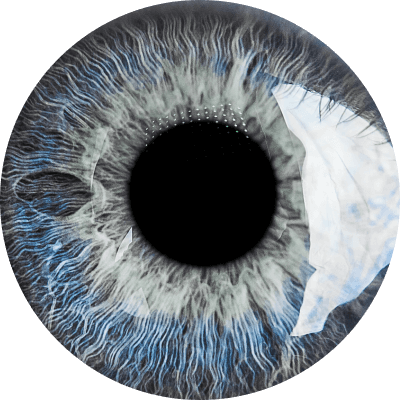
Correcting Residual Prescriptions
Once the progression of Keratoconus stopped there are treatments available to correct prescription caused by the disease.
Surgery Prices starting from just £89.58 per eye/month.
with a £250 deposit for 24 months
About
Once the progression of Keratoconus has naturally stabilised or has been halted with Collagen Cross-Linking, there are treatments available to correct the residual prescription caused by the disease. However, the prescription must be stable, which can take up to a year for it to be consistently stable.
At Precision Visoin we are one of the only clinics in the country that provides total visual rehabilitation and we have a variety of treatments to permanently correct the visual issues caused by the condition.
Once the prescription is stable, the treatment recommended will be determined by a specialist after comprehensive testing at a consultation. As Keratoconus weakens the structure of the cornea, it is recommended that no further stress is put in the area which is why sufferers are not allowed to have laser treatment even if it is stable.
However, there are three non-laser treatments available to correct the vision: Implantable Contact Lens, Piggy Back lenses and Clear Lens Exchange.
Treatments
Implantable Contact Lenses (ICL)
This is ideal for sufferers under the age of 40 and is able to correct complex prescriptions with high astigmatisms. It is the only vision correction treatment that is reversible.
Lens Replacement
This is designed for patients over the age of 40 that have developed a reading prescription. For Keratoconus we provide a range of Monofocal lenses that are able to correct complex astigmatisms.
Piggyback Lenses
This is for patients with extremely complex prescriptions and corneal abnormalities found in advanced cases of the condition. It involves two different lenses being inserted into the eye.
Your 4 step Treatment Plan
Our approach revolves around prioritising your optimal well-being.
Prior to your consultation
Your first point of contact will be with Precision Vision’s highly trained and knowledgeable patient coordinators.
Treatment
On the day of your treatment, our clinical team will guide you through the process and address any concerns or questions you may have.

Consultation
At Precision Vision, we believe that it is essential to be selective to ensure that every patient has the best treatment to suit their visual and lifestyle needs which is why determining suitability is incredibly important.
Aftercare
Your aftercare begins immediately after treatment when you are taken to the recovery room to relax and, when you are ready to leave, our specialist nurse will examine you before you go home.
Why choose Precision Vision for Correcting Residual Prescriptions
Utilising state-of-the-art medical techniques, our specialised treatment targets and corrects residual prescriptions with precision, leading to remarkable improvements in vision accuracy. Our comprehensive approach ensures thorough assessment and personalised care, delivering unparalleled results in vision correction. Trust us to provide top-tier solutions that prioritise your visual well-being and exceed expectations.
Our team comprises exceptional surgeons renowned for their expertise and dedication to achieving outstanding surgical outcomes. With a wealth of experience and a commitment to excellence, our surgeons consistently deliver top-notch care and results that surpass expectations. Trust in our skilled professionals to provide the highest standard of surgical expertise for your needs.
Experience our premium service tailored to exceed your expectations, delivering unparalleled quality and attention to detail. From personalised care to meticulous execution, we prioritise your satisfaction and comfort at every step. Entrust us to provide a superior service experience that goes beyond the ordinary, ensuring your needs are met with excellence.
Correcting Residual Prescriptions FAQ's
Residual prescriptions refer to any remaining refractive error in the eyes after previous vision correction procedures, such as LASIK, PRK, or cataract surgery.
Residual prescriptions can occur in a small percentage of cases after vision correction procedures, depending on factors such as the individual's eye anatomy and the type of procedure performed.
Residual prescriptions may result from factors such as under-correction, over-correction, irregular astigmatism, regression of the initial correction, or changes in the eye's refractive properties over time.
Residual prescriptions are typically detected during post-operative follow-up appointments with an eye care professional. Comprehensive eye exams, including refraction tests, help identify any remaining refractive errors.
Options for correcting residual prescriptions may include enhancement procedures, such as LASIK enhancement or PRK, exchange of intraocular lenses (IOLs) for cataract surgery patients, or specialty contact lenses for those ineligible for further surgical intervention.
Additional procedures to correct residual prescriptions are generally safe when performed by experienced eye surgeons and in appropriate candidates. However, risks and benefits should be carefully evaluated, and patients should discuss any concerns with their eye care provider.
The timing for addressing residual prescriptions varies depending on the type of procedure performed, the stability of the eyes, and other individual factors. In many cases, surgeons prefer to wait several months to ensure the eyes have stabilised before considering further interventions.
Non-surgical options for correcting residual prescriptions may include wearing glasses or contact lenses tailored to the remaining refractive error. These options provide temporary correction without the need for additional surgical procedures.
Factors influencing the success of correcting residual prescriptions include the accuracy of pre-operative assessments, the skill and experience of the surgeon, the patient's healing response, and adherence to post-operative care instructions.
In some cases, residual prescriptions may worsen over time due to natural changes in the eyes or other factors. Regular eye exams are important for monitoring any changes in vision and addressing them promptly to maintain optimal visual acuity.

